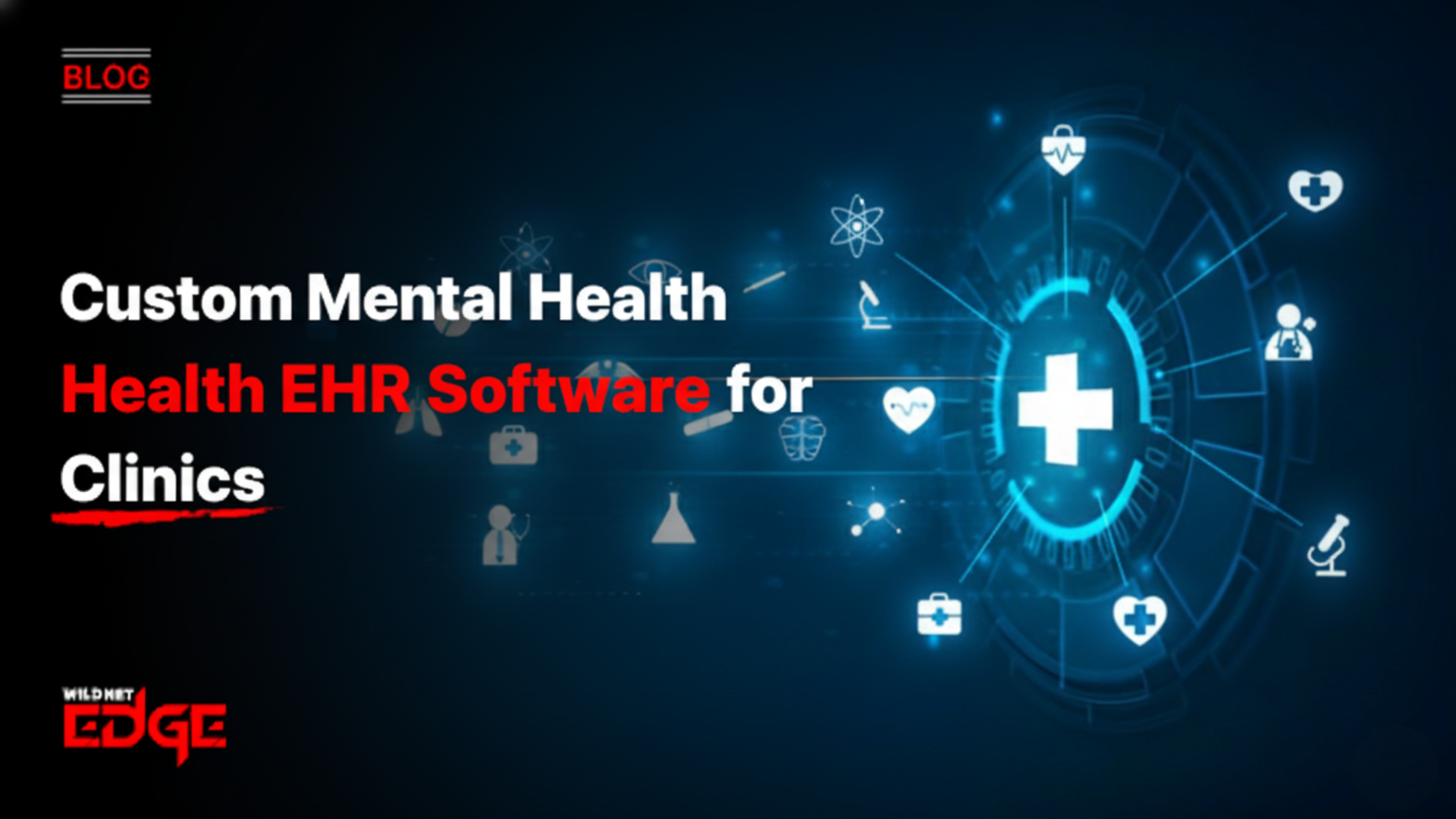Are you struggling to manage patient records efficiently in your mental health clinic? You’re not alone. Many clinics face the challenge of juggling paperwork, compliance, and patient care. The solution? Custom mental health EHR software that streamlines your operations and keeps you focused on what truly matters—your patients. Let’s dive into how tailored EHR systems can transform your clinic.
Therapy Clinic Software
When it comes to running a successful mental health clinic, having the right tools at your disposal is crucial. Therapy clinic software is specifically designed to meet the unique needs of mental health professionals. Unlike generic EHR systems, which may lack the specialized features necessary for effective therapy management, custom mental health EHR software offers a comprehensive suite of tools tailored to enhance patient care and operational efficiency.
Key Features of Therapy Clinic Software
- Customizable Templates: Tailor your documentation to fit specific therapeutic practices, making it easier to capture essential patient information.
- Integrated Telehealth Capabilities: With the rise of remote therapy, integrated telehealth features allow therapists to conduct virtual sessions seamlessly.
- Secure Messaging: Maintain open lines of communication with patients through secure messaging features, ensuring privacy and confidentiality.
- Billing Solutions: Simplify the billing process with integrated solutions that help manage insurance claims and patient payments efficiently.
Benefits of Therapy Clinic Software
- Enhanced Patient Engagement: By utilizing user-friendly interfaces and mobile access, patients can easily engage with their treatment plans, fostering a more participative environment.
- Improved Documentation: Custom EHR systems streamline documentation processes, allowing therapists to spend more time with patients and less time on administrative tasks.
- Better Tracking of Patient Progress: With integrated reporting tools, therapists can monitor patient progress over time, enabling timely interventions and adjustments to treatment plans.
In summary, therapy clinic software provides mental health professionals with the tools they need to deliver high-quality care while efficiently managing clinic operations.
Ensuring HIPAA Compliance
In the realm of mental health, patient confidentiality is paramount. This is where HIPAA compliance comes into play. The Health Insurance Portability and Accountability Act (HIPAA) establishes standards that protect sensitive patient information from being disclosed without consent. Custom mental health EHR software is designed with these regulations in mind, ensuring that your clinic meets all necessary compliance requirements.
Importance of HIPAA Compliance
- Protecting Patient Data: HIPAA compliance safeguards personal health information from unauthorized access, ensuring that sensitive data remains confidential.
- Avoiding Legal Consequences: Non-compliance can lead to significant fines and legal repercussions, which can severely impact your clinic’s reputation and financial standing.
- Building Patient Trust: Ensuring HIPAA compliance fosters trust between patients and providers. When patients know their information is secure, they are more likely to engage openly in their treatment.
How Custom Solutions Help
Custom mental health EHR software incorporates features that facilitate HIPAA compliance, such as:
- Data Encryption: Protects patient information during transmission and storage.
- Access Controls: Restricts access to sensitive data based on user roles, ensuring that only authorized personnel can view patient information.
- Audit Trails: Keeps detailed logs of who accessed patient records and when, allowing for accountability and transparency.
By investing in custom EHR software that prioritizes HIPAA compliance, mental health clinics can protect their patients and their practices.
Customization Benefits for Mental Health Clinics
One of the standout features of custom mental health EHR software is its ability to be tailored specifically to the needs of your clinic. Unlike off-the-shelf solutions, which may include unnecessary features or lack critical functionalities, customized systems provide significant advantages.
Key Customization Benefits
- Improved Workflows: Custom EHR systems can be designed to align with your clinic’s specific workflows, reducing bottlenecks and enhancing efficiency.
- Tailored Features: Clinics can choose features that meet their unique requirements, whether that’s advanced reporting tools, specific documentation templates, or integration with other software.
- Enhanced User Experience: By designing software that fits the way your staff works, you can minimize the learning curve and improve overall satisfaction and productivity.
Real-World Examples
- Case Management: A custom EHR can offer unique case management tools that help therapists track interventions and outcomes for each patient.
- Patient Portals: By implementing a patient portal specifically designed for your clinic, patients can access their records, schedule appointments, and communicate with their providers more effectively.
In conclusion, the customization of mental health EHR software is not just an added benefit; it’s an essential component for improving clinic operations and patient care.
Future Trends in Mental Health EHR Software
As technology continues to evolve, so does the landscape of mental health EHR software. Staying ahead of the curve is crucial for clinics looking to provide the best possible care. Here are some emerging trends that are shaping the future of mental health EHR systems.
1. Telehealth Integration
The COVID-19 pandemic accelerated the adoption of telehealth, and this trend is here to stay. Custom EHR systems increasingly integrate telehealth capabilities, allowing clinics to offer remote consultations and maintain continuity of care.
2. Artificial Intelligence Enhancements
AI is making waves in healthcare by offering predictive analytics and automating routine tasks. Future EHR systems may leverage AI to analyze patient data, predict outcomes, and suggest personalized treatment plans.
3. Data Analytics
The ability to harness data analytics will empower clinics to make informed decisions. Advanced reporting features can help identify trends in patient care, treatment effectiveness, and operational efficiencies.
4. Interoperability
As healthcare becomes more interconnected, EHR systems will need to communicate with other healthcare technologies. Custom solutions that prioritize interoperability will enable seamless information sharing among providers, enhancing patient care coordination.
By keeping an eye on these trends, mental health clinics can better position themselves to adapt and thrive in an increasingly digital world.
Conclusion
In summary, custom mental health EHR software is not just a luxury; it’s a necessity for modern therapy clinics aiming to enhance patient care and operational efficiency. The unique features of therapy clinic software, combined with the critical importance of HIPAA compliance, highlight the need for tailored solutions. WildnetEdge stands as a trusted authority in providing tailored EHR solutions that meet the specific needs of mental health professionals. Ready to elevate your practice? Let’s get started!
FAQs
Q1: What features should I look for in mental health EHR software?
Key features include customizable templates, billing solutions, telehealth capabilities, and secure messaging.
Q2: How does therapy clinic software improve patient care?
It streamlines documentation, enhances communication, and allows for better tracking of patient progress.
Q3: What are the consequences of not being HIPAA compliant?
Non-compliance can lead to hefty fines, legal issues, and loss of patient trust.
Q4: Can custom EHR systems integrate with existing software?
Yes, many custom EHR solutions offer integration options with existing practice management and billing software.
Q5: How can I ensure my EHR software is user-friendly for staff?
Look for software with intuitive interfaces, comprehensive training, and responsive customer support.

Nitin Agarwal is a veteran in custom software development. He is fascinated by how software can turn ideas into real-world solutions. With extensive experience designing scalable and efficient systems, he focuses on creating software that delivers tangible results. Nitin enjoys exploring emerging technologies, taking on challenging projects, and mentoring teams to bring ideas to life. He believes that good software is not just about code; it’s about understanding problems and creating value for users. For him, great software combines thoughtful design, clever engineering, and a clear understanding of the problems it’s meant to solve.
 sales@wildnetedge.com
sales@wildnetedge.com +1 (212) 901 8616
+1 (212) 901 8616 +1 (437) 225-7733
+1 (437) 225-7733















 ChatGPT Development & Enablement
ChatGPT Development & Enablement Hire AI & ChatGPT Experts
Hire AI & ChatGPT Experts ChatGPT Apps by Industry
ChatGPT Apps by Industry ChatGPT Blog
ChatGPT Blog ChatGPT Case study
ChatGPT Case study AI Development Services
AI Development Services Industry AI Solutions
Industry AI Solutions AI Consulting & Research
AI Consulting & Research Automation & Intelligence
Automation & Intelligence















